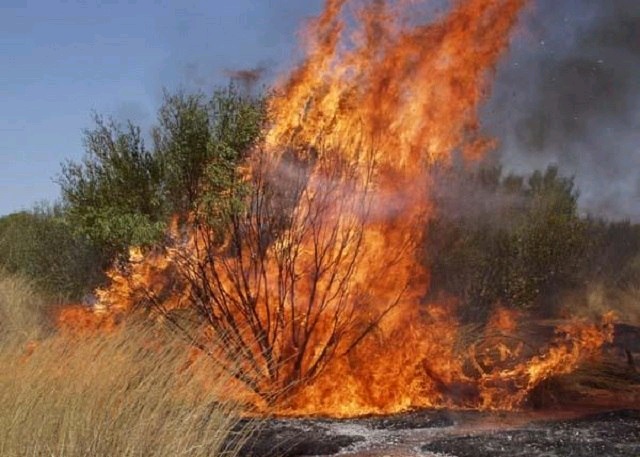
Kitgum, Uganda | THE INDEPENDENT | Only an estimated 20 percent of perennial crops distributed under the Operation Wealth Creation program in Kitgum district survive, because of rampant burning of bushes by the community every year.
Operation Wealth Creation-OWC is a government program purposed to improve the livelihood of the community by improving their income. It was launched by President Yoweri Museveni in 2014 after many government interventions failed to provide a tangible impact amongst beneficiaries.
Through the initiative, farmers in Kitgum received at least 388,557 citrus trees and 179,938 mango seedlings between 2015 and 2020. However, Lt. Col. Charles Bokello Odur, the coordinator of Operation Wealth Creation in the district told URN that the seedlings were burnt by bush fires, especially during the dry season.
Col. Bokello says whenever they do monitoring of the crops, they find a survival rate of the perennial crops at only 20 per cent, with mangoes being the most affected.
Col. Bokello says their attempts to sensitize the community on the need to attend to the perennial crops have not yielded much. He advises the local leaders to enact by-laws to penalize those found setting fires in the wild.
Kitgum Resident District Commissioner William Komakech cautions that the community will remain poor because of their negligence and abuse of programs introduced to alleviate poverty.
“For households to grow there is a need for them to grow crops such as mangoes and citrus. But when the crops survive one dry season, the next dry season fire comes and destroys them,” Komakech says.
Komakech ordered the local council leaders to start arresting those who burn bushes so that they are penalized according to the law. The burning of bushes by any person is prohibited in all areas of Uganda, under the 1974 Prohibition of the Burning of Grass Act, and the Local Governments Act. It is only permitted under the authority and supervision of specified public officers.
Despite this law, bush burning remains a common practice in Acholi during the dry season, and it is mostly done to give way for new pasture for animals, clearing land for agriculture as well as hunting animals such as edible rats.
According to Global Forest Watch, the peak season for fire in Kitgum district starts in early December and lasts for about 14 weeks. The Global body notes that from December 7, 2020, to November 29, 2021, Kitgum received 771 fire alerts through the Visible Imaging Radiometer Suite-VIIR, an instrument that collects visible and infrared images and global observations of land, atmosphere and part of the earth with frozen water and oceans.
It uses both fixed and contextual texts to detect active fires and other thermal anomalies throughout the day. The VIIRS shows that so far this year, 280-kilo hectares (an equivalent to 691,880 acres) of land have been burned in Kitgum.
*****
URN
 The Independent Uganda: You get the Truth we Pay the Price
The Independent Uganda: You get the Truth we Pay the Price






There should be by-laws inacted by the local councils.